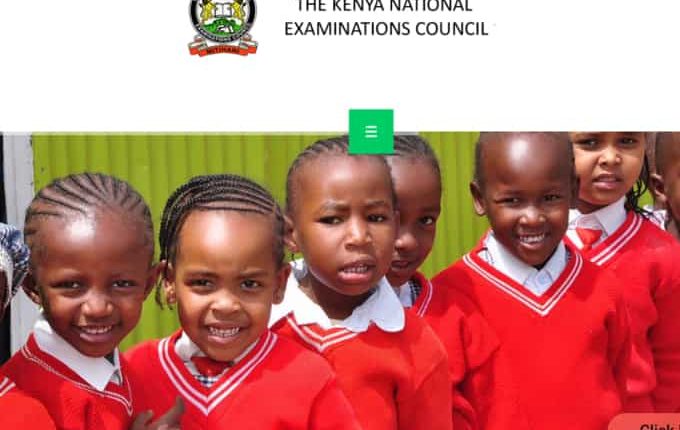2019 KEYA Assessment Criteria for Grade 3 Learners by KNEC
The following are the 2019 instructional guidelines to teachers in assessing the Grade 3 Learners. The guidelines have been issued by the Kenya National Examination Council, KNEC.
The guidelines are meant to help in monitoring the 2019 Grade 3 learners as part of the Kenya Early Years Assessment, KENYA.
The Grade 3 teacher’s role has been outlined and integrated learning areas Instructions issued.
Monitoring Learners’ Progress Grade 3 2019
Integrated Learning Areas Instructions
a) The teacher will guide the learner to carefully read through the performance task, carry out every step as required, and build a portfolio.
b) The task will be carried out within a duration of two months.
c) The task involves a clean up of the market place next to the school.
d) The teacher should seek permission from the local authorities to carry out the task.
e) The teacher will use the Assessment Rubrics provided for each task to assess the learner’s work.
f) Samples of work that show the learner’s performance on the tasks should be maintained in the assessment portfolio.
g) Samples of work selected for the portfolio should aim at illustrating the learner’s progress and achievement in learning.
h) Each learner is required to develop and maintain a portfolio as evidence of learning.
THEME: A Clean Environment for Good Health and Well Being
1.0 General Outcomes for Early Years Education
a) Explore the immediate environment for learning and enjoyment;
b) Practice hygiene, nutrition, sanitation and safety skills to promote health and wellbeing;
c) Apply creativity and critical thinking skills in problem solving;
d) Apply digital literacy skills for learning and enjoyment.
2.0 Standard
The learner can:
a) Describe ways of keeping the market place clean;
b) Participate in cleaning the market place;
c) Observe safety when disposing waste;
d) Demonstrate appreciation of a clean environment.
3.0 Performance Task
3.1 Learners will be involved in the following activities:
a) Watching video clips / viewing photographs/ pictures of a clean-up exercise and identifying
the cleaning activities observed.
b) Pre-visit to the nearest marketplace to observe the state of cleanliness. Guided by the teacher, learners to identify specific areas that require cleaning.
c) i) Identification of the cleaning materials/tools that can be used in cleaning the market place.
ii) With the help of their parents/ guardians, each learner to improvise at least one relevant material for cleaning the market place.
d) Learners to visit the marketplace for a clean-up exercise.
(Before the actual cleanup exercise, the teacher should put learners in groups of 4 – 6 and assign cleaning areas to each group).
e) Guided by the group leaders, learners to do stretch up exercises to warm up before carrying out the cleaning activity.
f) Learners to carry out the cleaning exercise in their assigned areas while observing safety measures.
g) Learners to safely sort and dispose off the collected waste.
h) Mwanafunzi aandike njia mbalimbali za kutunza usafi sokoni.
i) Learn and sing a song of their choice on cleaning the environment (individually and in groups).
j) Individually draw any two objects used in cleaning the market place (such as litter bins, brooms, brushes etc.). Mount the completed drawings in the learner’s assessment portfolio.
3.2 Targeted Learning areas Reference
a) Environmental Activities Vol. 2, G3, Pg. 126, S2.0, ss 2.1.1 Vol. 2, G3,Pg 134,S3.0, ss 3.3
b) Movement and Creative Activities Vol. 4, G3, Pg. 340, S1.0, ss 1.1 Vol. 4, G2, S1.0, ss 1.1, G1 pg. 13, S1.0 ss 2.1
c) Religious Activities Vol. 3, G3, Pg. 132, S6.0, ss 6.3
d) English Activities Vol. 1, G3, Pg. 287, S1.0, ss 1.3
e) Kiswahili Activities Vol. 1, G3, Pg. 98, S6.0, ss 6.4
f) Mathematics Activities Vol. 2, G1, Pg. 4, S1.0, ss 1.1
g) Hygiene and Nutrition Activities Vol. 2, G3, Pg. 200, S1.0, ss 1.4
3.3 Core Competencies Targeted
a) Communication and collaboration as they work in groups.
b) Critical thinking and problem solving as they improvise cleaning materials.
c) Imagination and Creativity as they draw, label and mount objects.
d) Digital literacy as they watch video clips and take photos of the cleaning activities.
e) Self-efficacy as they sing individually.
f) Learning to learn as they clean the market place.
3.4 Link to Values
Responsibility, love, unity, honesty, cooperation and respect as they work in groups.
3.5 Link to PCIs
a) Citizenship, Environmental education, Health Education, Life Skills.
b) Community Service Learning as they clean the market.
c) Education for Sustainable Development.



Comments are closed.